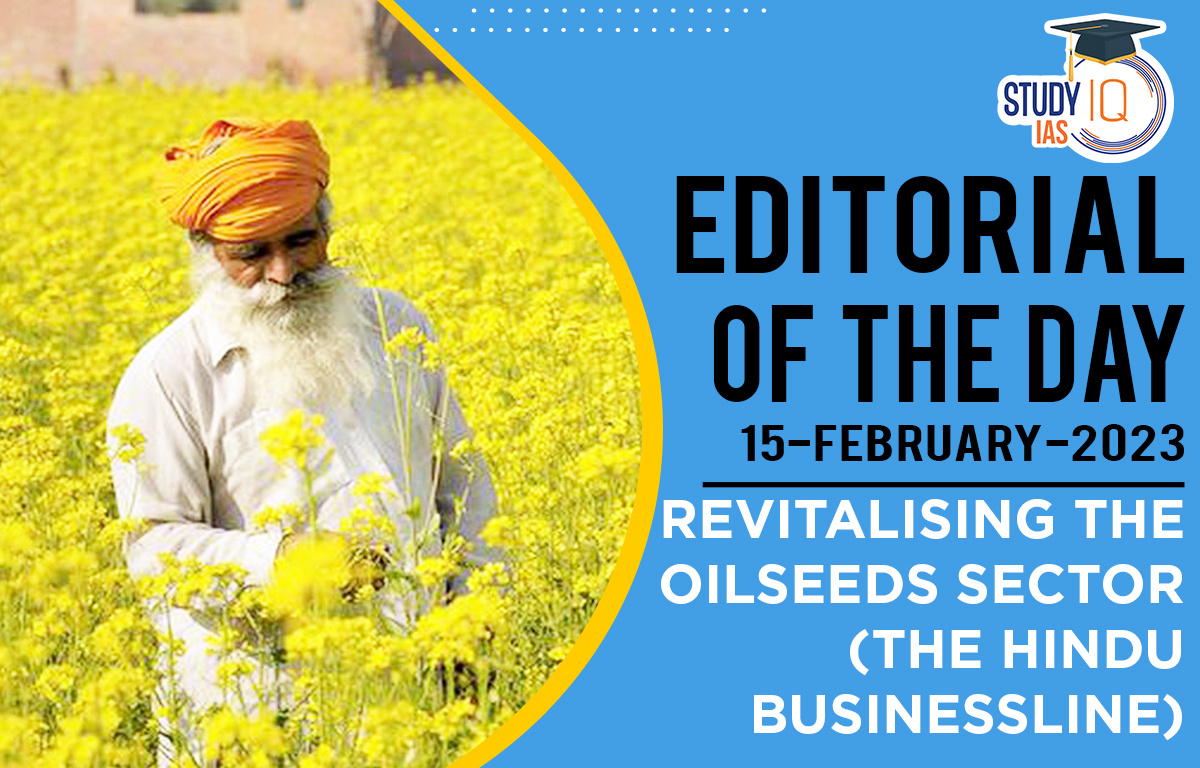Table of Contents
The government is keen to boost domestic production of vegetable oil to reduce the dependence on imports.
- India currently imports vegetable oil amounting to 13-14 million tonnes, valued at over $14 billion to meet domestic shortage.
- In the medium-to-long term, India must move towards substantial self-reliance. But the present import policy is unable to protect the interests of domestic oilseed growers.
- Only a comprehensive policy that balances the interests of growers and consumers, and takes into account land constraints, water shortage and climate change, will work.
Domestic oilseeds production in the long term can be boosted through following initiatives:
- Enforcing area expansion by incentivising crop rotation in high-input grain mono-cropping areas of Punjab, Haryana and western Uttar Pradesh;
- Adopting cutting-edge technologies such as info-tech, satellite tech, nuclear agri-tech and nanotech;
- Working towards a research and innovation in seed technology;
- Implementing robust nationwide oil seeds procurement system;
- Tapping the huge potential of non-conventional oil sources like cottonseed, rice-bran and tree-borne oilseeds;
- Investing in enhancing extraction efficiency
Short-term Policy Actions to Improve Vegetable oil Availability
- Regulate and monitor imports of vegetable oil: The existing actions are usually knee-jerk, without substantial data to back the decisions.
- There is a need to create ‘Import Contract Registration’ for monitoring of arrivals. It will remove the opacity in trade and facilitate data-driven decision.
- Reducing credit period: Credit period for overseas supplier should be cut down to maximum 45 days. Long credit period encourages over-trading and speculation, which has led to Indian importers falling in ‘import debt trap’.
- Reducing credit period will automatically slow the pace of import and make the importer more responsible and accountable.
- Cooking oil in PDS: Coking oil must be included in PDS so that vulnerable sections of consumers will get supply of edible oil under welfare programmes at subsidised rates.
- Oil seed import: Import of oilseeds will boost utilisation of idle processing capacity; improve edible oil availability; and also make available oil cake/meal for the domestic livestock sector or for export.
- Oilseeds Processing Industry Modernisation Fund: This fund can help in modernisation of oilseeds industry, making them efficient in terms of scale, equipment, technology and productivity.
- It will also create potential to attract foreign direct investment in the sector.
- Backward integration with suppliers: Oilseeds processing industries must establish backward linkages with domestic oilseeds producers to reduce dependence on imports.
Conclusion
- Much focus has been given to oil palm cultivation, but nothing remarkable has happened in the last 30 years in terms of productivity.
- A comprehensive review of the promotion policy is necessary for sustained growth.
- Policymakers must show strong ‘political will’ to change status quo and provide the oilseeds sector with policy, investment and research support.


 Daily Quiz 14 April 2025
Daily Quiz 14 April 2025
 UPSC Syllabus 2025, Check UPSC CSE Sylla...
UPSC Syllabus 2025, Check UPSC CSE Sylla...
 EU Plans to Slash General Data Protectio...
EU Plans to Slash General Data Protectio...





















